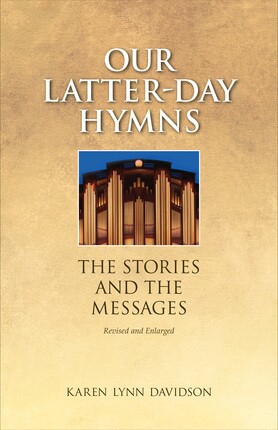Few things bring the spirit of Christmas into our lives more than music. To help invite that spirit, here’s a brief history of “Far, Far Away on Judea’s Plains” that can bring added meaning to your Christmas celebrations this season.
“Far, Far Away on Judea’s Plains”
Text and music: John Menzies Macfarlane (1833–1892; Latter-day Saint)
Tune name: CHATTERLEY
Most Latter-day Saints could not imagine a Christmas without the opportunity to sing this favorite carol. We can be proud of this Latter-day Saint contribution to the music of Christmas.
In a biography called Yours Sincerely, John M. Macfarlane, written and privately printed by his descendant L. W. Macfarlane, we learn the family tradition surrounding the writing of this carol. John Macfarlane was a choir director in St. George, Utah. “As involved as he was in music,” the biography tells us, “John M. Macfarlane even dreamed music, and more than once, it is said, he would spring from his bed in the middle of the night to jot down a melody, lest the light of morning should erase it from his memory.”
In the preholiday season of 1869, he decided his choir needed a new carol for their Christmas program. At his request, his friend Charles L. Walker provided a suitable text. But John Macfarlane labored in vain for a suitable melody; the music just would not come.
The biography continues: “Then one night it came, suddenly, in a dream. John was awake instantly. He shook Ann [his wife] into wakefulness, crying out, ‘Ann, Ann, I have the words for a song, and I think I have the music too!’”
He found the next morning that the words he had written were in fact quite different from Charles L. Walker’s text. Even so, he urged Charles Walker to put his name down as [the] author, but the biography gives this as Walker’s reply: “These are not my words, John. I have never seen them before. These are your words. You have written both the words and music yourself, and you must take the full credit.”
We have no record of Walker’s original words, and no way of knowing how close to our present text were the lines that served as a catalyst for Macfarlane. He wrote no other hymn texts—music was his talent. The tune name honors Macfarlane’s wife, Ann Chatterley.
Visitors to the Holy Land know that Judea’s shepherds herded their sheep on rocky hills rather than on plains. But this error in topography, made by one who had never traveled to Bethlehem, certainly does nothing to diminish the significance of this Latter-day Saint hymn.
“Far, Far Away on Judea’s Plains” was first published in the Juvenile Instructor on December 15, 1889, 20 years after it was written.
John Macfarlane and Charles L. Walker collaborated on other hymns, of which “Dearest Children, God Is Near You” (no. 96) is still in our hymnal today.
Our Latter-day Hymns: The Stories and the Messages
Prepared with the cooperation and assistance of the General Music Committee of the Church, this companion to the hymnbook gives brief biographies of the authors and composers of the hymns, the stories of the hymns themselves, and an account of changes that may have occurred in the words or in the music.


